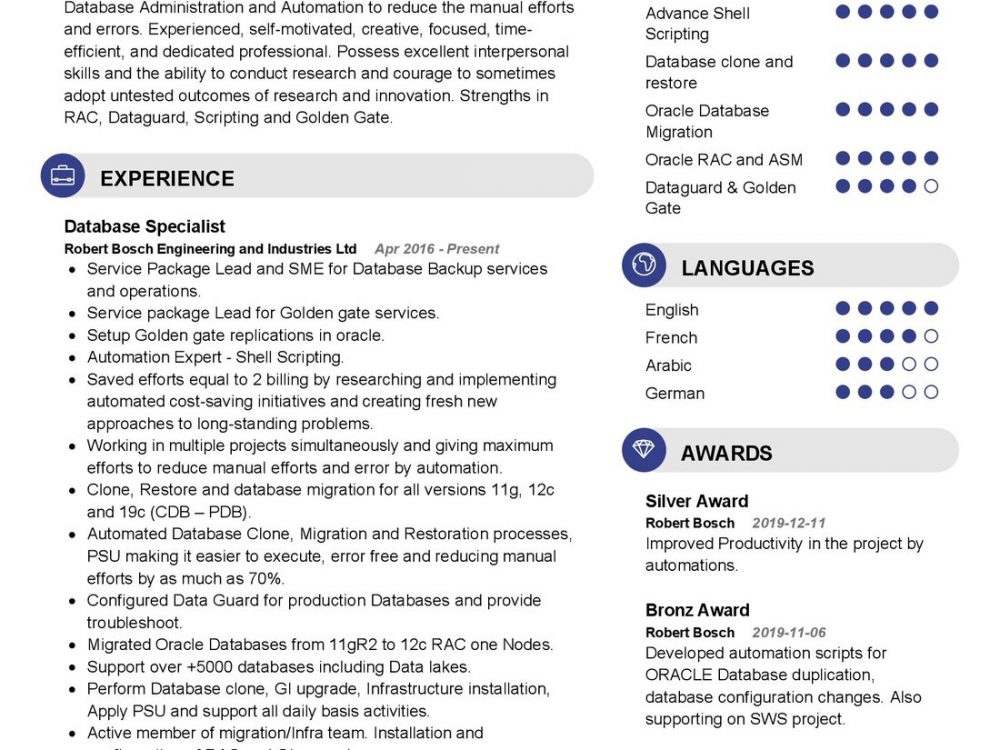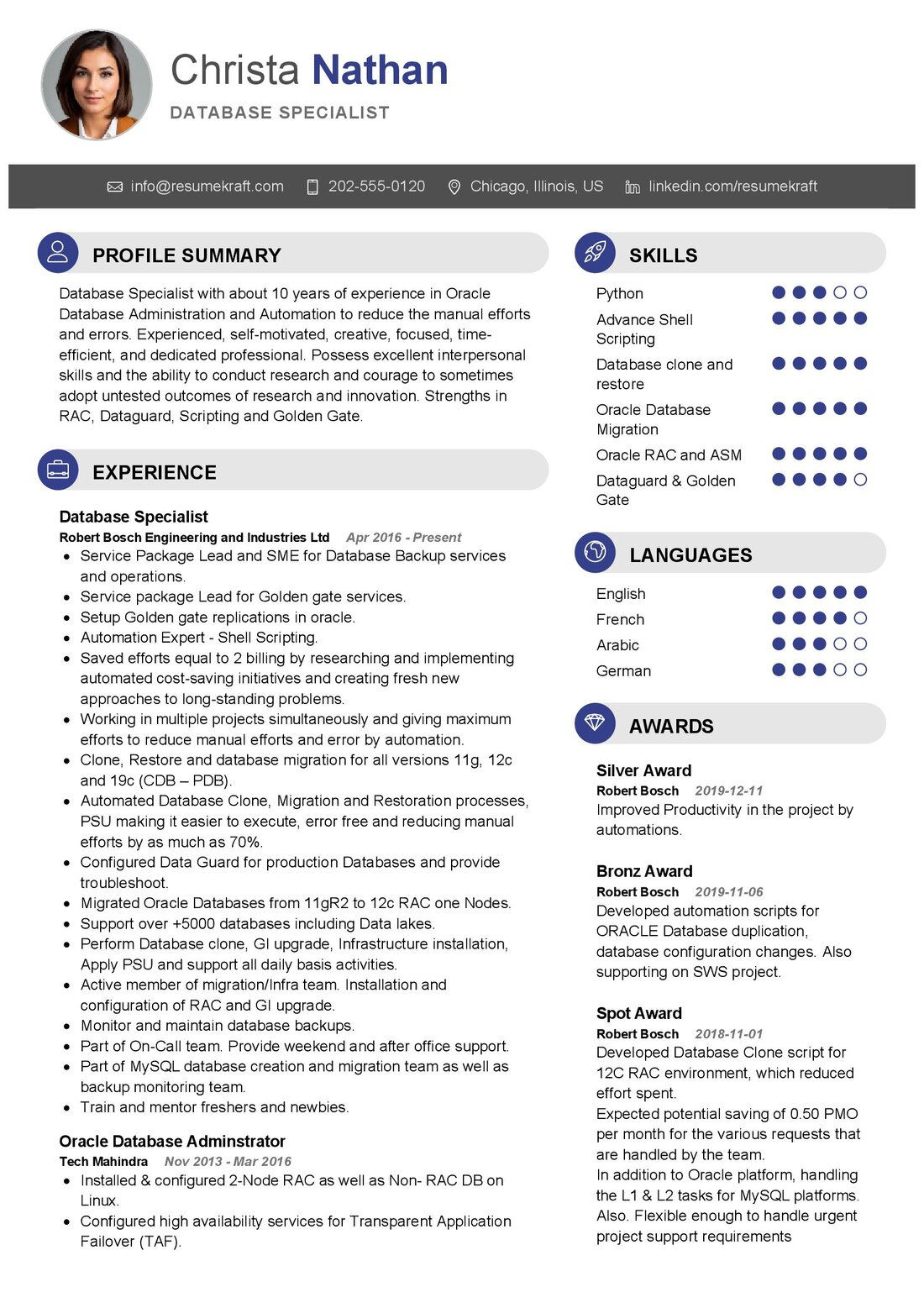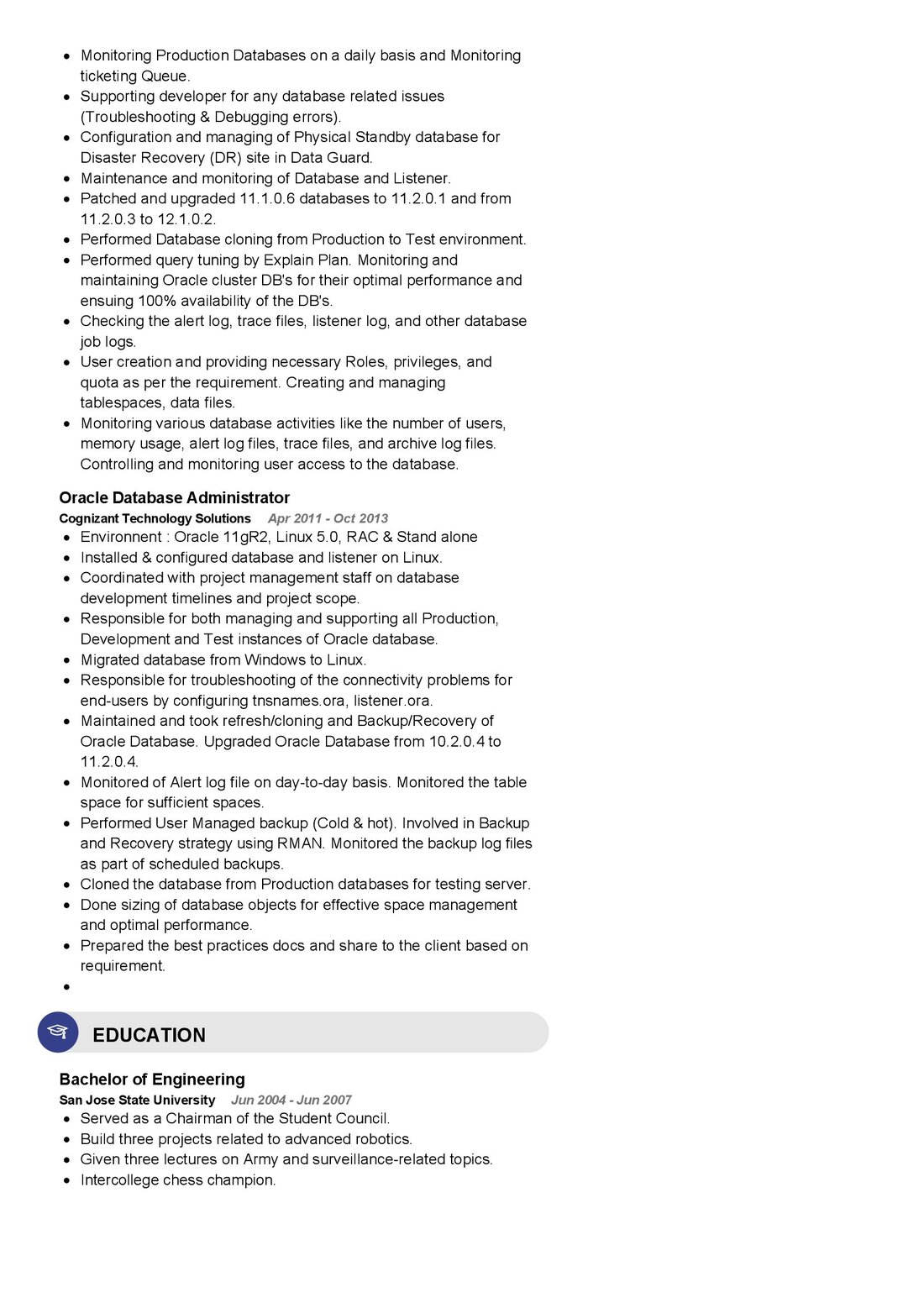The Role of a Database Specialist
In today’s data-driven world, the role of a Database Specialist has evolved to become a linchpin in the seamless functioning of organizations across industries. This position combines technical prowess with a strategic mindset to manage and optimize data, ensuring that it flows efficiently to support critical business operations. Let’s delve deeper into the multifaceted role of a Database Specialist, a profession that demands a profound understanding of database systems coupled with the ability to navigate the complex landscape of data management.
Requirements to Excel as a Database Specialist
Stepping into the shoes of a Database Specialist requires meeting a set of stringent prerequisites, a journey that is both challenging and rewarding. The path is paved with continuous learning and hands-on experience. Let’s explore the essential requirements you need to fulfill to thrive as a Database Specialist:
- A Bachelor’s or Master’s degree in Computer Science, Information Technology, or a related field, demonstrating a solid foundation in the technical domain.
- Proficiency in database management systems (DBMS), including SQL Server, Oracle, MySQL, or others, showcasing your ability to navigate various database platforms.
- Experience in database design and development, a journey where you have honed your skills and taken on increasing levels of responsibility.
- Strong analytical skills, enabling you to interpret data and provide insights for decision-making.
- Attention to detail, a critical trait when dealing with data accuracy and integrity.
- Excellent problem-solving abilities, as you’ll encounter various data-related challenges in your role.
Additionally, obtaining certifications in database management, such as Oracle Certified Database Administrator (OCDBA) or Microsoft Certified: Azure Database Administrator, can bolster your profile in the competitive job market.
Responsibilities of a Database Specialist
The role of a Database Specialist is a tapestry of diverse responsibilities, interwoven with threads of technical expertise, analytical thinking, and strategic vision. Let’s unravel the core responsibilities that define this role, with each thread narrating a story of dedication, knowledge, and innovation:
- Database Design and Development: Creating and maintaining databases that meet the organization’s requirements, ensuring data is organized efficiently.
- Data Security and Integrity: Implementing measures to safeguard sensitive data, maintaining data accuracy, and ensuring compliance with data protection regulations.
- Performance Optimization: Identifying and resolving performance bottlenecks in database systems to ensure data retrieval and processing are swift and efficient.
- Data Analysis and Reporting: Analyzing data to provide valuable insights for business decision-making and generating reports for stakeholders.
- Backup and Recovery: Developing and testing backup and recovery plans to prevent data loss in case of system failures or disasters.
- Database Documentation: Creating and maintaining documentation related to database schemas, configurations, and processes.
- Collaboration: Working closely with cross-functional teams to understand their data needs and providing support and solutions.
Each responsibility presents its unique challenges and opportunities for learning, contributing to your growth as a Database Specialist.
Crafting a Winning Database Specialist Resume
Your resume is your ticket to the world of database management, a document that should eloquently narrate your journey, skills, and aspirations. Here are some tips to help you create a compelling Database Specialist resume:
- Highlight Your Achievements: Showcase instances where you’ve successfully designed and implemented databases that improved efficiency or solved specific business problems.
- Quantify Your Impact: Use metrics to quantify your accomplishments, such as the percentage of performance improvement or the volume of data managed.
- List Relevant Certifications: Include any certifications you’ve earned in database management to demonstrate your commitment to staying current in your field.
- Customize for the Job: Tailor your resume for each specific job application, emphasizing skills and experiences that align with the job description.
Remember, your resume is more than a document; it’s a canvas where you paint your career story, a story of growth, learning, and success as a Database Specialist.
Database Specialist Resume Summary Examples
Your resume summary serves as the opening act of your career story, setting the stage for what follows. It should be a powerful snapshot of your journey, encapsulating your experiences, skills, and the value you bring to the table. Here are some examples to inspire you:
- “Experienced Database Specialist with a track record of designing and optimizing database systems, passionate about data security and performance.”
- “Detail-oriented Database Specialist with expertise in SQL Server, skilled in data analysis and reporting, and committed to maintaining data integrity.”
- “Database Specialist with a strong background in Oracle database management, adept at collaborating with cross-functional teams to deliver data-driven solutions.”
Each summary is a window to your career, offering a glimpse of your journey, your strengths, and your vision as a Database Specialist.
Building Your Database Specialist Resume’s Experience Section
Your experience section is the heart of your resume, pulsating with the rich experiences you’ve gathered over the years. It is a space where you narrate your career story, highlighting milestones and learning. Here are some examples to guide you:
- “Led a team of database administrators in optimizing database performance, resulting in a 30% reduction in query response time.”
- “Designed and implemented a data security protocol that ensured compliance with industry regulations, protecting sensitive data from unauthorized access.”
- “Collaborated with the marketing department to analyze customer data, leading to targeted marketing campaigns and a 15% increase in sales.”
Each experience is a chapter in your career book, narrating tales of challenges met, solutions found, and successes achieved.
Your Educational Milestones as a Database Specialist
Your educational journey is the foundation upon which your career stands. It is a testimony to your knowledge, expertise, and commitment to learning. Here’s how you can list your educational milestones:
- Master of Science in Computer Science, XYZ University, a journey of in-depth learning and specialization, 2018.
- Bachelor of Science in Information Technology, ABC University, the cornerstone of your IT career, 2014.
- Oracle Certified Professional (OCP), a validation of your expertise in Oracle database management, 2019.
Each educational qualification is a stepping stone, leading you to the pinnacle of success in your career as a Database Specialist.
Essential Skills for a Database Specialist
Your skill set is your toolkit, equipped with a diverse range of tools that you’ve honed over the years. It’s a showcase of your abilities, both innate and acquired. Let’s list down the essential skills that a Database Specialist should possess:
Soft Skills:
- Analytical Thinking: The ability to dissect complex problems and derive insights from data.
- Communication: Effectively conveying technical information to non-technical stakeholders.
- Problem-Solving: Finding solutions to data-related challenges efficiently.
- Attention to Detail: Ensuring data accuracy and completeness in database systems.
- Adaptability: Navigating evolving technology and data management trends.
Hard Skills:
- Database Management: Proficiency in various database management systems, including SQL Server, Oracle, MySQL, etc.
- Data Analysis: Using tools and techniques to extract insights from data.
- SQL Querying: Writing and optimizing SQL queries for data retrieval and manipulation.
- Data Security: Implementing measures to protect data from unauthorized access or breaches.
- Database Design: Creating efficient and normalized database schemas.
Each skill is a tool in your arsenal, helping you manage and optimize databases effectively.
Common Mistakes to Avoid When Writing a Database Specialist Resume
As you craft your resume, it’s essential to steer clear of common pitfalls that can hinder your journey to landing your dream job. Here are the mistakes often seen in resumes and how to avoid them:
- Using Generic Resumes: Tailor your resume for each job application to highlight relevant skills and experiences.
- Focusing on Duties, Not Achievements: Instead of listing job duties, emphasize your accomplishments and their impact.
- Ignoring the Cover Letter: Use the cover letter to connect with potential employers and express your enthusiasm for the role.
- Technical Jargon Overload: While technical knowledge is essential, avoid overwhelming the reader with excessive jargon.
- Failing to Proofread: Typos and errors can leave a negative impression, so proofread your resume meticulously.
Avoiding these mistakes will help you craft a resume that is both authentic and compelling.
Key Takeaways for Your Database Specialist Resume
As we conclude this comprehensive guide, let’s recap the key points to keep in mind while crafting your Database Specialist resume:
- Emphasize Your Achievements: Highlight your successes and the impact of your work as a Database Specialist.
- Quantify Your Impact: Use metrics to provide concrete evidence of your contributions.
- Customize for Each Job: Tailor your resume for specific job applications to match the employer’s needs.
- Continued Learning: Showcase any certifications or courses that demonstrate your commitment to staying current in the field.
Finally, feel free to utilize resources like AI Resume Builder, Resume Design, Resume Samples, Resume Examples, Resume Skills, Resume Help, Resume Synonyms, and Job Responsibilities to create a standout application and prepare for the Database Specialist job interview.
Your journey as a Database Specialist is a testament to your technical prowess and strategic thinking, and your resume should reflect that journey with clarity and confidence. Best of luck!



